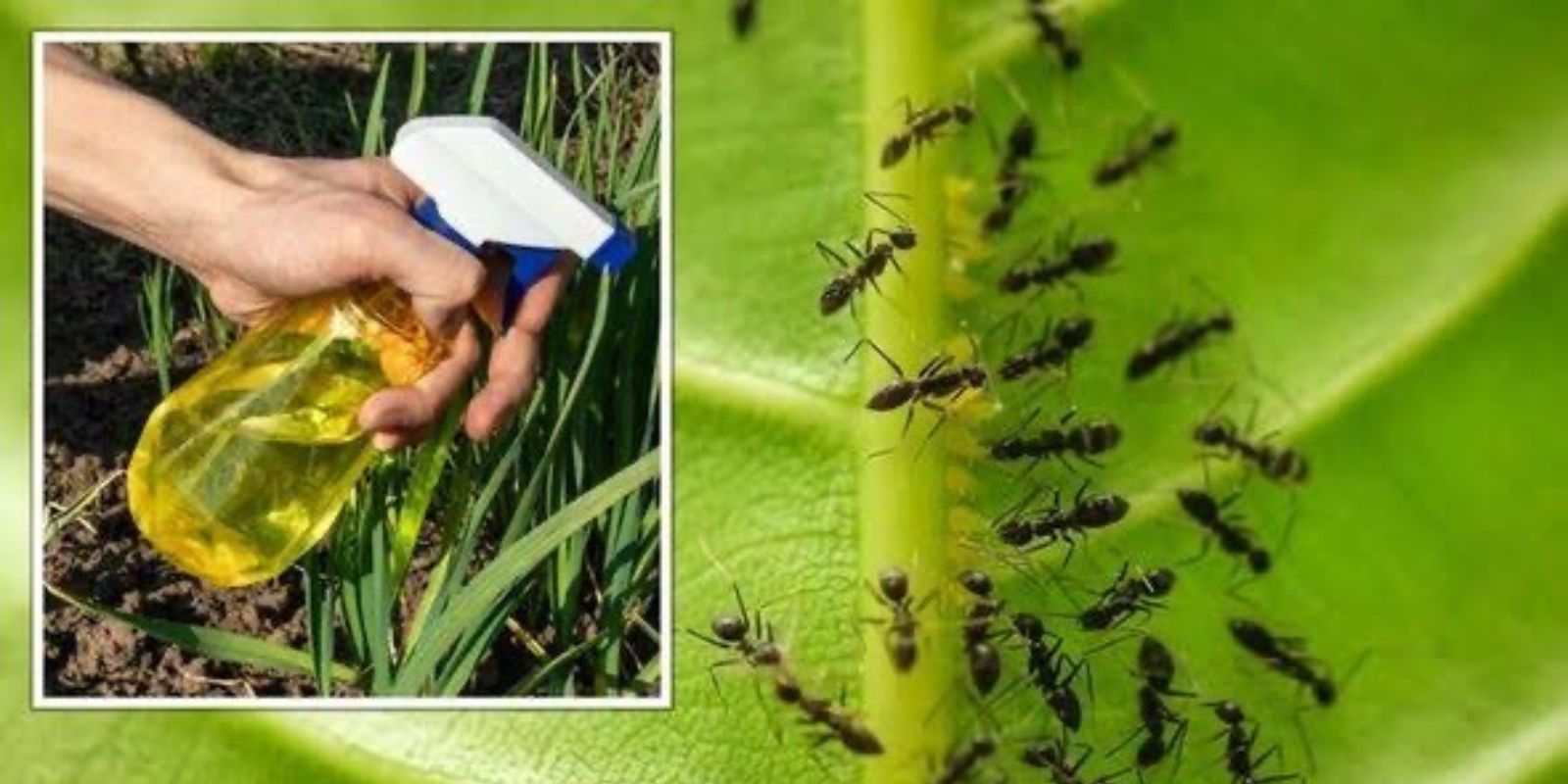Ants may be small, but their presence in the garden can quickly turn into a big nuisance. While they play a role in ecosystems, they can damage plants, disrupt soil health, and encourage the spread of pests like aphids. If you’ve been battling with ants in your garden, this natural and effective remedy will have them fleeing in just 10 seconds. Say goodbye to harmful chemical pesticides and embrace a safer, eco-friendly approach to pest control.
Why Choose a Natural Remedy for Ants?
Traditional ant repellents often contain harsh chemicals that can harm beneficial insects, contaminate soil, and even pose risks to pets or humans. A natural solution is not only safer but also equally effective. By using everyday household items, you can control ants without compromising your garden’s health.
This step-by-step guide will walk you through a proven method to rid your garden of ants quickly and sustainably.
The Hidden Powers of Simple Ingredients
The key to this remedy is a combination of natural ingredients that disrupt ants’ scent trails and make your garden an unwelcome environment for them:
- White Vinegar: Disorients ants by interfering with their communication trails.
- Lemon Juice: Contains d-limonene, a compound toxic to ants that also masks their trails.
- Water: Helps dilute and distribute the active ingredients.
- Cinnamon or Coffee Grounds (Optional): Both are natural ant repellents, ideal for prevention.
Step-by-Step Guide to Eliminate Garden Ants
1. Gather Your Supplies
Here’s what you’ll need:
- White vinegar
- Lemon (freshly squeezed juice)
- Water
- Spray bottle
- Optional: Cinnamon powder or coffee grounds
2. Mix the Ant-Repelling Solution
- Combine equal parts of white vinegar and water in a spray bottle.
- Squeeze the juice of one lemon into the mixture for enhanced effectiveness.
- Shake the bottle well to ensure the ingredients are fully mixed.
3. Identify the Problem Areas
- Look for ant trails or entry points near your plants.
- Check for ant hills or nests in your garden soil.
- Make note of areas where you’ve observed frequent ant activity.
4. Spray the Solution
- Generously spray the mixture directly on ants, their trails, and any entry points.
- Apply the solution to ant hills if visible. The mixture works to destroy their scent trails, disorienting them and forcing them to move elsewhere.
5. Reapply Regularly
- For persistent infestations, repeat the spraying process daily until ants no longer return.
- Focus on early morning or late evening applications for the best results when ants are most active.
6. Prevent Future Infestations
After successfully driving away the ants, take these preventive measures:
- Sprinkle Cinnamon or Coffee Grounds: Ants dislike the strong scent of cinnamon and coffee, which can act as barriers to keep them from returning. Sprinkle these around your plants or garden beds.
- Seal Entry Points: If you find ants coming from outside the garden, seal cracks or gaps in walls, pavements, or structures.
Additional Tips for Success
- Monitor Beneficial Ants:
Not all ants are harmful. Some species aerate the soil and help control other pests. Use this method only when ants become a clear problem. - Avoid Overwatering:
Ants thrive in dry soil, but overwatering can encourage mold and aphids, which ants often farm for their honeydew secretions. Maintain balanced soil moisture to deter both pests. - Maintain Garden Hygiene:
Clear fallen fruits, decaying plant matter, and food scraps from the garden, as these attract ants.
The Science Behind the Remedy
This natural remedy works on multiple levels to repel ants:
- Vinegar: The acetic acid in vinegar disrupts the ants’ sense of smell, which is essential for them to follow pheromone trails back to their nests.
- Lemon Juice: The citrus scent masks their trails and acts as a toxin when ingested in large quantities.
- Cinnamon and Coffee Grounds: Both create physical and olfactory barriers that ants prefer to avoid.
By combining these elements, the solution not only repels ants but also discourages their return, creating a long-term solution for your garden.
Why This Method Stands Out
- Eco-Friendly: Safe for beneficial insects, plants, pets, and humans.
- Cost-Effective: Uses simple ingredients that you likely already have at home.
- Quick Results: Starts working in as little as 10 seconds to disrupt ant activity.
Alternative Natural Remedies to Try
If you’re looking to diversify your pest control methods, consider these options:
- Diatomaceous Earth: Sprinkle around plants to kill ants by dehydrating them.
- Borax and Sugar Paste: Attracts and kills ants but should be kept away from pets and children.
- Essential Oils: Peppermint or tea tree oil diluted with water can be sprayed in problem areas.
The Benefits of an Ant-Free Garden
- Healthier Plants: Without ants farming aphids, your plants are less likely to suffer from sap loss and disease.
- Improved Soil Conditions: Ant infestations can disturb root systems and alter soil structure.
- More Enjoyable Gardening Experience: No more worrying about ant bites or pests damaging your hard work.
Final Thoughts
A garden free of ants doesn’t require harsh chemicals or expensive products. With just a few simple ingredients, you can reclaim your garden space and protect your plants naturally. This method is quick, effective, and better for the environment, making it a win-win for any gardener.
Have you tried this trick or know of other natural remedies for ants? Share your tips and experiences in the comments below—we’d love to hear from you!

